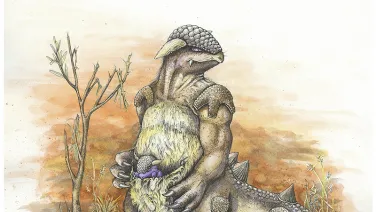E&E PhD Exit Seminar: Old World Serpents and New World Dragons: the Evolutionary Dynamics of Pythons and Liolaemid lizards
Speakers
Event series
Content navigation
Description

Current patterns of biodiversity, whether its species richness or phenotypic diversity, need to be understood in the context of the past. The history of living organisms is told at multiple dimensions, one of them being their phylogenetic history. However, to make sense of the story a phylogeny is telling us, we need to put it in the light of past geological, ecological and climatic events. Biological systems that will always provide us with interesting stories and insight into how evolution works are adaptive radiations. These are groups of organisms that have quickly diversified to fill a variety of ecological niches, becoming very diverse (in species or phenotypic richness) in relative short amounts of time. My PhD focused on two iconic and very different adaptive radiations: the pythons from Africa, Asia and Australo-Papua (“the Old World”), and the Liolaemid lizards of southern South America (“the New World”). Pythons include 44 species, but have a phenotypic diversity greater than most snake groups, with species adapted to a remarkable variety of environments. Liolaemid lizards, might not have that incredible phenotypic diversity, but have diversified into more than 300 species in the same time frame pythons have (20 to 40 million years). During this thesis, I explore the influence of geology, geography and climate, in shaping the diversity of these two groups, going from the deep time scales of their origins, to recent speciation events happening in the last ice ages.
Location
Eucalyptus Seminar Room Rm S205, Level 2, RN Robertson Building (46)

